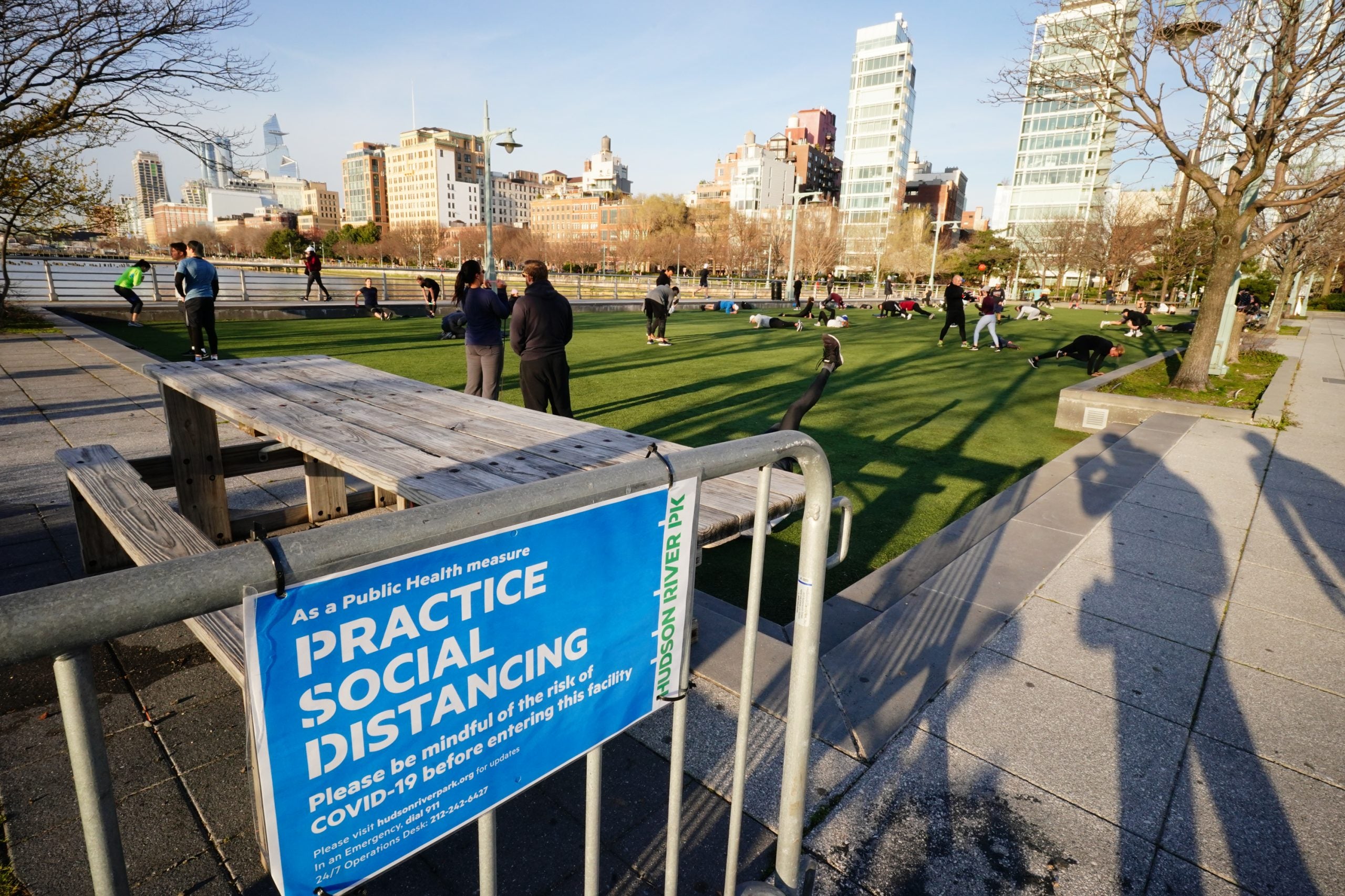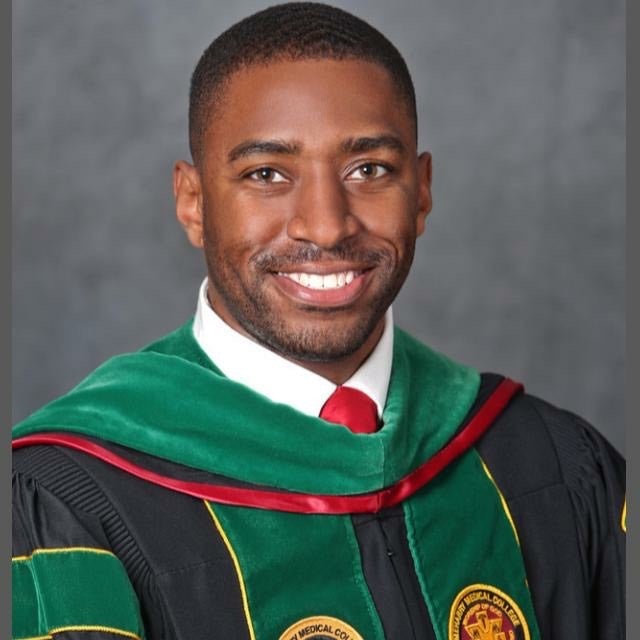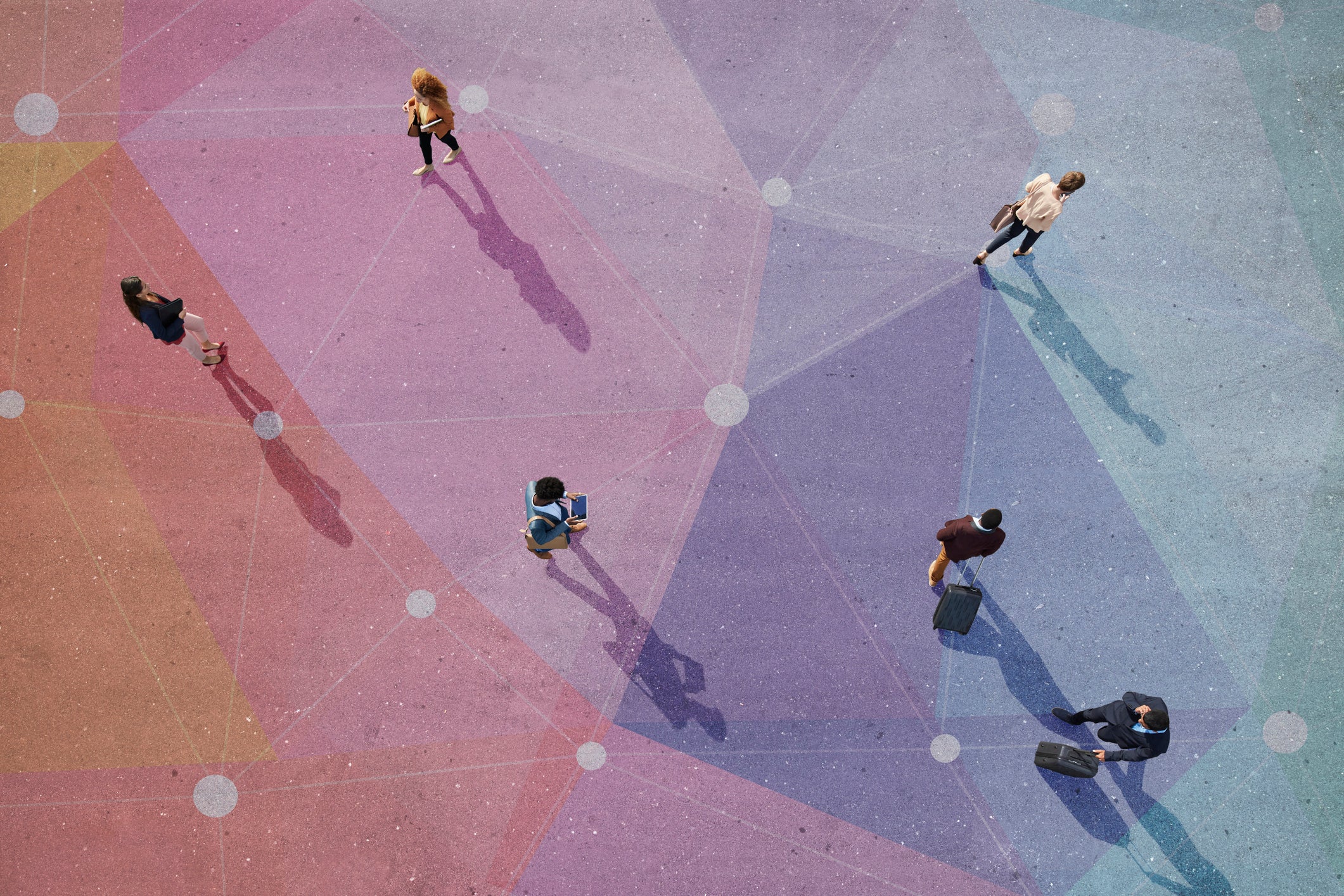As the novel coronavirus, COVID-19, continues its rampage through the United States and across the globe, a new buzzword, “social distancing,” has surfaced as public health experts and government officials alike try to work with the public in order to flatten the curve and bring the spread of the virus to a standstill.
Prior to the pandemic, social distancing was not a phrase that appeared in everyday, universal lingo. Now everywhere we go, everywhere we turn, from signs in our grocery stores to reminders on the news, the two words abound.
But what exactly is staying socially apart? How best can we practice it? How important is it that we maintain our social distance in these challenging times?
ESSENCE spoke to Gerald Onuoha II, M.D., an internal medicine acute care hospitalist in Nashville, Tennessee, about social distancing and any tips he had to offer.
What Is Social Distancing?
“Social distancing is intentionally increasing the physical space between people to avoid spreading illnesses,” Onuoha explained to ESSENCE via email. “Staying at least six feet away from other people lessens your chances of catching COVID-19.”
Some of these measures are the obvious ones that have been put into place by local governments across the nation in order to stop the spread of the virus, such as canceling schools, working from home when possible, and canceling (or avoiding) large gatherings such as sporting events and concerts.
Arabia Mollette, M.D., a New York City-based emergency physician, also stressed the difference between social distancing and self-isolation or quarantine, the latter of which may become necessary if a person becomes symptomatic from the virus.
“Social distancing involves remaining out of congregate settings, avoiding mass gatherings and maintaining distance whenever possible to limit the ability of the virus to spread,” she explained. “Self-isolation or quarantine restricts the movement of people within a certain area or zone to limit transferring and spreading an infection.”

Why Do We Have To Do This Again?
We get it. It’s inconvenient to have your life put on hold, to not be able to hang out with your friends and do the other things you enjoy that may help you maintain a balanced life. But make no mistake, social distancing is important because it helps take some pressure off the medical professionals who are on the front lines of this overwhelming pandemic and can potentially be lifesaving.
“Social distancing is important because it helps in slowing the spread of the coronavirus. Health professionals are trying to ‘flatten the curve,’ that is, slow the rate at which the virus is spreading and prevent overwhelming the health care system,” Onuoha said. “Too many people getting coronavirus at one time increases the likelihood of us running out of hospital beds, supplies and health care providers. This is not good for our communities or the country.”
Make no mistake, overcrowding in hospital emergency rooms especially is nothing new. With the virus spiking and potentially larger numbers of people falling ill, the lack of beds in hospitals, equipment, medical personnel and more could lead to even more deaths once the tipping point has been met. Resources are finite.
“We’re in the middle of a pandemic that has the potential to harm both our loved ones and our way of life” Onuoha said. “The virus is highly contagious and can make some people really sick. If staying home for a short period of time will help the community and the nation get over this ‘viral hump’ then I think it’s worth a try.”
Okay, So Basically I Can Never Leave My House Unless I’m Going To The Grocery Store?
You don’t have to lock yourself in your house forever; however, Onuoha stresses that it is important to only go out for essential reasons.
“Nonessential traveling and gatherings should be put off until our public health officials say the virus’ spread has significantly decreased and that it is now safe to socialize again and return to our normal routine,” he said.
Thankfully, we do live in a world of social media, which is a good way to stay connected with others in our community, especially those who may need assistance.
The doctor warned that if you have to make an essential visit to see someone in person to be sure to ask the person if they’ve had any of the classic symptoms of the virus.

What Are Some Good Practices To Keep In Mind?
“Some of the best practices of social distancing are making sure you have a two- to three-week supply of food, disinfectants and essential life items like prescriptions,” Onuoha said.
The doctor reiterated canceling nonessential in-person meetings or gatherings and finding ways to chat via phone, video or social media, as well as limiting not only your movement in your community but visitors to your home as well. Of course, there is also the CDC guidelines of washing your hands and/or using hand sanitizer frequently.
He also encouraged developing a “household plan of action, which includes checklists on supplies; disaster planning; and gathering information about local organizations and institutions that provide assistance during emergencies,” as well as “establishing communication with family and close friends to make sure that all of you have everything you need for a distancing period.”
How Do I Stay Mentally Grounded While Remaining Socially Apart?
“Everyone has their own method,” Onuoha noted, but he said now is the time that he would be catching up on personal projects and hobbies that have been put off because of a lack of time.
“Start that business, launch that website, read and finish that book, learn more about wealth building and real estate or the stock market and how it works,” he encouraged. “Spend that quality time with your [significant other] and/or your kids, which builds stronger relationships in the house.”
“I’ve also been doing some fun things like partying with D-Nice at Club Quarantine,” he added, noting that he’s been keeping up with social media concerts and catching up with friends. “I like to think I got a chance to party with Michelle Obama, Will Smith and Oprah.”
Is There Anything Else We Should Know?







“This is an unprecedented time right now. Anxieties are high and we as a community are having to distance ourselves in ways unimaginable up until recently. But don’t be scared, be prepared. Learn more about the virus, the symptoms, and how it spreads. Make sure that your family has a plan on getting food and supplies and taking care of the vulnerable,” the doctor said.
“Practice social distancing and wash and/or sanitize your hands often. Know where to find emergency contact information, including the doctor’s office. If you start to have symptoms make sure that you quarantine yourself for 14 days and make sure you prevent the spread to the elderly and those with chronic illnesses like heart disease, diabetes and cancer,” Onuoha continued. “If your symptoms become unmanageable at home, seek medical help. Focus on family, community and projects that you need to finish to keep you busy. Work from home if you can. If we do this, then I believe we’ll get through it. But we have to do it together. We’re all we got.”
ESSENCE is committed to bringing our audience the latest facts about COVID-19 (coronavirus). Our content team is closely monitoring the developing details surrounding the virus via official sources and health care experts, including the World Health Organization (WHO), the Centers for Disease Control and Prevention (CDC) and the Occupational Safety and Health Administration (OSHA). Please continue to refresh ESSENCE’s informational hub for updates on COVID-19, as well as for tips on taking care of yourselves, your families and your communities.

